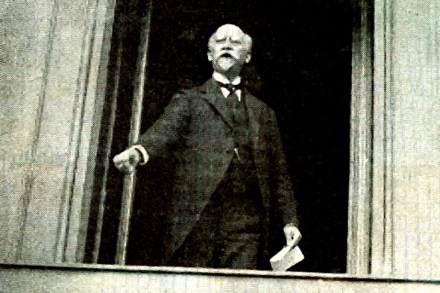The greatest ‘if only’ of modern history… that the Weimar Republic had succeeded
Has it ever occurred to you that the Spanish flu pandemic of 1918 might have won us the war? Until I read November 1918 it hadn’t to me. Now I know that between May and June that year, as German forces moved to within artillery range of Paris, a million of Ludendorff’s troops, half-starved owing




















